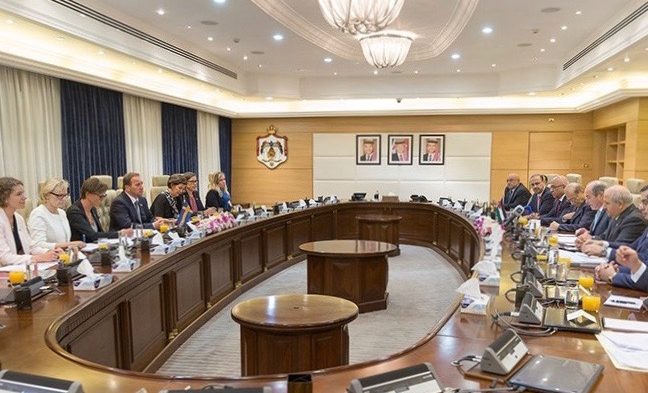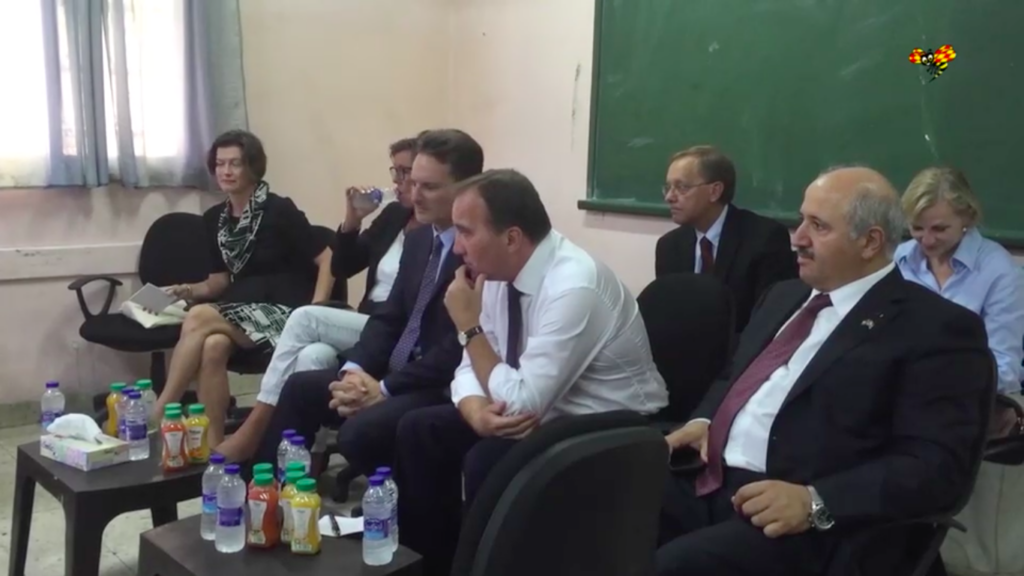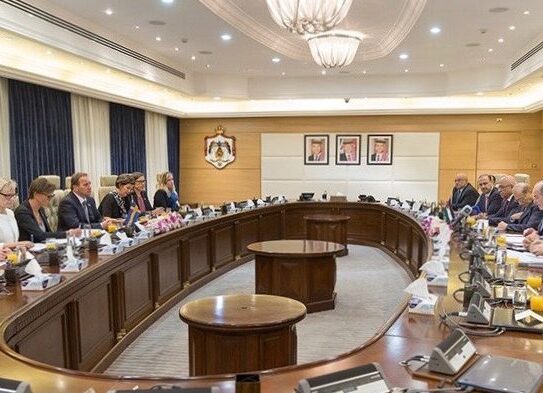
Following Swedish prime minister Stefan Löfven’s meeting with his Jordanian counterpart Hani al-Mulki, Expressen TV interviewed Björn Brenner about Swedish-Jordanian relations and the current humanitarian and security situation in the Hashemite kingdom.
These were the main points of his commentary:
– The current wave of Syrian refugees is a critical challenge for the Jordanian government. Potentially, it could lead to a destabilisation of the entire country. The risk is real but, thus far, this is something which has been hardly discussed and many in the West have refused to see.
– There is a risk that the alarmingly high level of unemployment, >40 percent among the youth, will lead to rising discontent in society on a broader front. At one point or another, ordinary Jordanians might say they have had enough and public protests can return to the streets of Amman.
– There is also a risk that the high level of unemployment, in conjunction with the many millions of refugees the country has absorbed during the past decades, will start to transform into a form of Daesh-style violent extremism on a broad front. To some extent, this has already started to happen. Only during the past year, Jordan has seen several terrorist attacks – and many attempts at attacks that were thwarted before the assailants managed to carry them out.
– Hence, dealing with the massive influx of refugees is the top priority of the Jordanian government. This year, the government says, 25 percent of its entire state budget has had to be used on social problems and issues related to the refugee crisis. At the same time, economic growth in Jordan is declining, from 3 percent in 2014 to 2 percent in 2015. Without any major heavy industry or other main sources of income, such as oil, Jordan has been relying heavily on its tourism industry. Now when Jordan is almost surrounded by civil wars and conflicts in all directions, the tourists simply choose other destinations that they perceive to be safer.
– Sweden is a major economic contributor to the western part of the Middle East. Yearly, Swedish taxpayers give billions (SEK) for development projects and humanitarian aid, only in this region. Sweden also supports Jordan directly with bilateral economic support of SEK 40-50 million per year.
– Last year, an agreement was reached between Jordan, on the one hand, and the EU, the World Bank and other donor countries/organisations, on the other. The idea of this agreement was to try to turn the refugee crisis into a possibility for further development instead.
– While the EU agreed to ease trade restrictions for import/export to/from Jordan, the World Bank contributed with extra funds to support local Jordanian job-generating projects. In exchange for this, the Jordanian government would issue hundreds of thousands of new work permits to refugees already in the country. It remains to be seen whether the Jordanian government will honour its part of the deal.
– While Sweden and Jordan have relatively limited relations in terms of trade, the two countries’ diplomatic relations are nevertheless excellent and their bilateral ties strong in a number areas. In addition to this, the two countries’ royal families enjoy close relations and members of the Jordanian royal family regularly participate in international conferences and other events in Sweden.
Read more
Official statement by Government of Sweden on prime minister’s meeting with Jordanian counterpart
Watch more
Interview on Expressen TV with Sweden’s incoming ambassador to Jordan, HE Erik Ullenhag
Photo credits: Victor Svedberg/RK (top), ExpressenTV/TT


